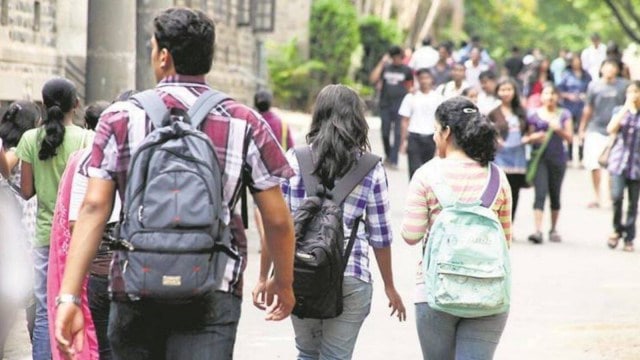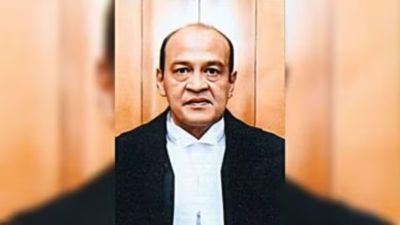Minority institutions in Mumbai up in arms as seats in open category shrink following SC/ST/OBC quota
As per the established practice, 45 per cent of the total intake in minority institutions is kept open to all students, irrespective of category, after reserving 50 per cent for the particular minority, and 5 per cent for management quota.
 A government official said the only communication in this regard is a Government Resolution (GR) issued on May 6 on the FYJC admission process. The sentence from the GR that the officer referred to deals with vacant seats under the minority quota after three rounds of admissions.
A government official said the only communication in this regard is a Government Resolution (GR) issued on May 6 on the FYJC admission process. The sentence from the GR that the officer referred to deals with vacant seats under the minority quota after three rounds of admissions.A major controversy has erupted in the First Year Junior College (FYJC) admission process in minority trust-run junior colleges in Maharashtra this year after the state government has applied SC/ST/OBC reservations on the open/general seats. Alleging that this change is arbitrary and without any intimation, minority colleges in the city are now exploring options to legally challenge it.
As per the established practice, 45 per cent of the total intake in minority institutions is kept open to all students, irrespective of category, after reserving 50 per cent for the particular minority, and 5 per cent for management quota. However, starting this year, the FYJC admission portal is reflecting that SC/ST/OBC reservation is applied on those 45 percent seats, thereby significantly reducing the seats available for open category.
This has sparked widespread confusion among junior colleges run by minority institutions, as they say the Supreme Court has explicitly prohibited such reservation in minority institutions, as it would increase the number of quota seats to beyond 80 per cent. Authorities at the minority colleges are also irked that there was no clear communication on the change, as most of them only noticed it on the admission portal. “With no clarity from the government, there is no option but to seek justice at the court of law. Future course of action will be decided after understanding implications of this new rule and its legal complications,” said principal of a minority-trust run junior college in Mumbai.
Colleges are terming it to be a completely random move as there is absolute lack of clear guidelines on the same by the government. Principal of one of the premier colleges in Mumbai said, “Multiple communications have been sent by the government regarding FYJC admissions along with its rules and regulation but in none of them there was a mention of introduction of SC/ST/OBC reservation in minority-run colleges. Whereas the admission portal is reflecting these changes.”
A government official said the only communication in this regard is a Government Resolution (GR) issued on May 6 on the FYJC admission process. The sentence from the GR that the officer referred to deals with vacant seats under the minority quota after three rounds of admissions.
“If admissions are lower than the intake capacity in minority quota, admissions can be given as per interchanging between linguistic and religious minority groups. Even after that, if seats remain vacant, those surrendered vacant seats will be filled based on the centralised admission process where all social and parallel reservations are applicable,” the GR states.
The officer also referred to a decision by minority department of Government of Maharashtra from May 2013 which states that after reserving 50 percent seats for candidates coming from their minority, on remaining 50 percent seats that are filled by non-minority, it is mandatory to admit candidates from SC/ST/OBC and other deprived castes on the seats reserved for the weaker elements as per policy of education department of state government. “The government is only implementing this now which has been pending for so long,” said the officer.
Colleges, however, highlighted that the May 6 GR effectively means that constitutional reservation will apply to seats left vacant in the minority quota. “But nowhere does the document mention that the state has decided to implement the constitutional reservation to all seats in minority colleges which are going for the Centralised Admission Process (CAP). These seats until last year have been open for all to be filled only on the basis of merit. We cannot know of the changes until informed about it,” said principal of another minority-trust run college adding that there was no discussion or meeting in this regard for colleges to know about it without a written communication in this regard.
However, the government officer insisted that though the particular sentence in the GR pertains to leftover seats under the minority quota, “it is implied here that the other remaining seats will see application of reservation”.
“That is the point of conducting centralised admission process so that the system is the same in all colleges. There should not be any confusion over this,” the officer added.
With no clarity from the government, legal experts say that the minority trust-run colleges have an option to approach the High Court to challenge the Government Resolution/s on the grounds of arbitrariness or non-consultation by the concerned department among other contentions and await court’s decision or interpretation on the same.












